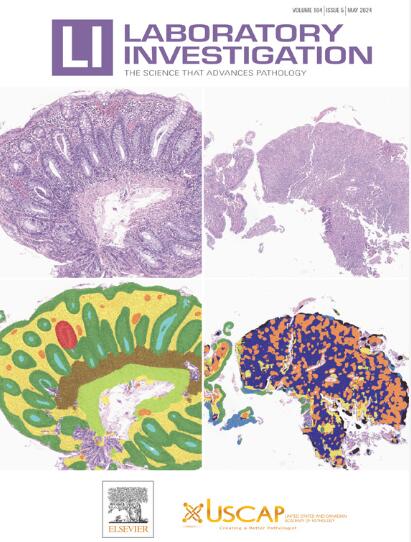Annotation Practices in Computational Pathology: A European Society of Digital and Integrative Pathology (ESDIP) Survey Study
IF 5.1
2区 医学
Q1 MEDICINE, RESEARCH & EXPERIMENTAL
引用次数: 0
Abstract
Integrating digital pathology and artificial intelligence (AI) algorithms can potentially improve diagnostic practice and precision medicine. Developing reliable, generalizable, and comparable AI algorithms depends on access to meticulously annotated data. However, achieving this requires robust collaboration among pathologists, computer scientists, and other researchers to ensure data quality and consistency. The lack of standardization and scalability is a significant challenge when generating annotations and annotated data sets. Recognizing these limitations, the Scientific Committee of the European Society of Digital and Integrative Pathology (ESDIP) performed a comprehensive international survey to understand the current state of annotation practices and identify actionable areas to address critical needs in the annotation process. The analysis and summary of the survey results provide several insights for all stakeholders involved in data preparation and ground truthing, ultimately contributing to the advancement of AI in computational pathology.
计算病理学中的注释实践:欧洲数字和综合病理学协会(ESDIP)调查研究。
整合数字病理学(DP)和人工智能(AI)算法可以潜在地改善诊断实践和精准医疗。开发可靠的、可推广的、可比较的人工智能算法依赖于对精心注释的数据的访问。然而,实现这一目标需要病理学家、计算机科学家和其他研究人员之间的紧密合作,以确保数据的质量和一致性。在生成注释和带注释的数据集时,缺乏标准化和可伸缩性是一个重大挑战。认识到这些局限性,欧洲数字与综合病理学学会(ESDIP)科学委员会进行了一项全面的国际调查,以了解注释实践的现状,并确定可操作的领域,以解决注释过程中的关键需求。对调查结果的分析和总结为参与数据准备和实地调查的所有利益相关者提供了一些见解,最终有助于人工智能在计算病理学方面的进步。
本文章由计算机程序翻译,如有差异,请以英文原文为准。
求助全文
约1分钟内获得全文
求助全文
来源期刊

Laboratory Investigation
医学-病理学
CiteScore
8.30
自引率
0.00%
发文量
125
审稿时长
2 months
期刊介绍:
Laboratory Investigation is an international journal owned by the United States and Canadian Academy of Pathology. Laboratory Investigation offers prompt publication of high-quality original research in all biomedical disciplines relating to the understanding of human disease and the application of new methods to the diagnosis of disease. Both human and experimental studies are welcome.
 求助内容:
求助内容: 应助结果提醒方式:
应助结果提醒方式:


